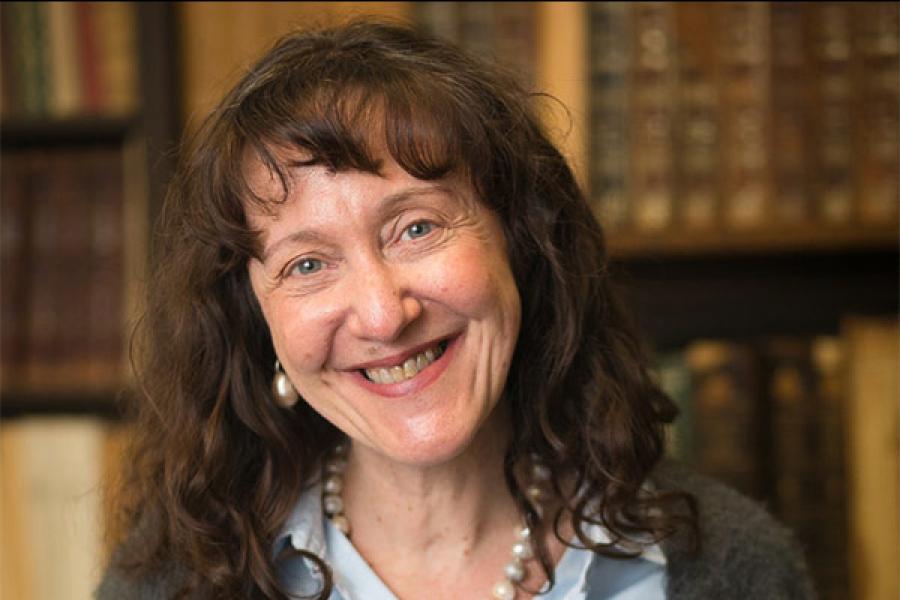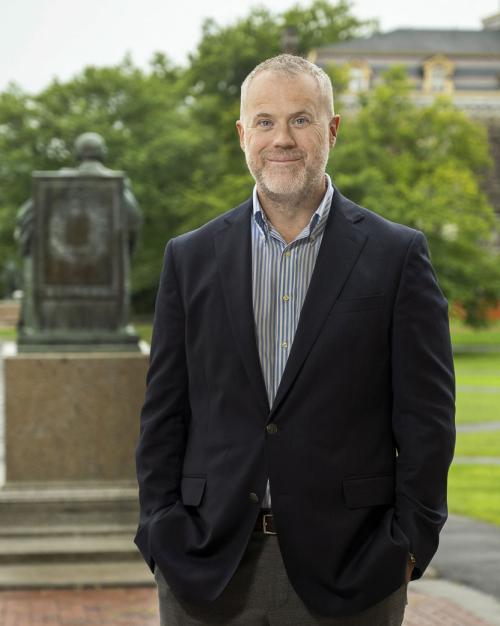
Deans
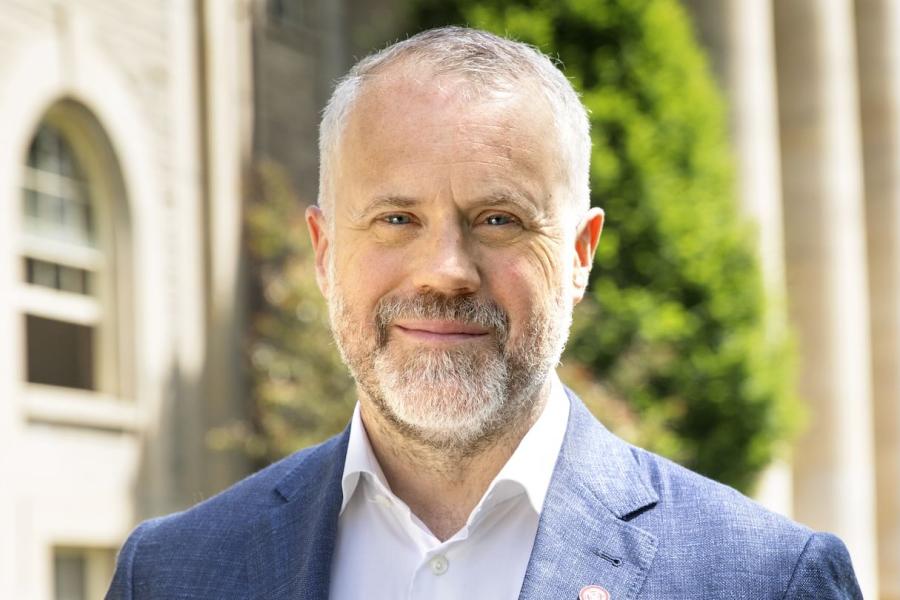
Peter John Loewen
Harold Tanner Dean of the College of Arts and Sciences
Professor of Government
607-255-1097
as_dean@cornell.edu
As the Harold Tanner Dean of the College of Arts and Sciences, Peter Loewen leads the largest and most academically diverse college at Cornell.
Before coming to Cornell, he spent 14 years at the University of Toronto in numerous roles, most recently as Director of the Munk School of Global Affairs and Public Policy and as the Robert Vipond Distinguished Professor in Democracy in the Department of Political Science. Loewen was also the director of the Policy, Elections and Representation Lab (PEARL); associate director of the Schwartz Reisman Institute for Technology and Society; a senior fellow at Massey College; and a fellow with the Public Policy Forum, a Canadian think tank.
His research centers on the future of democratic societies and the politics of technological change. He has edited four books and published in leading journals of political science and other disciplines.
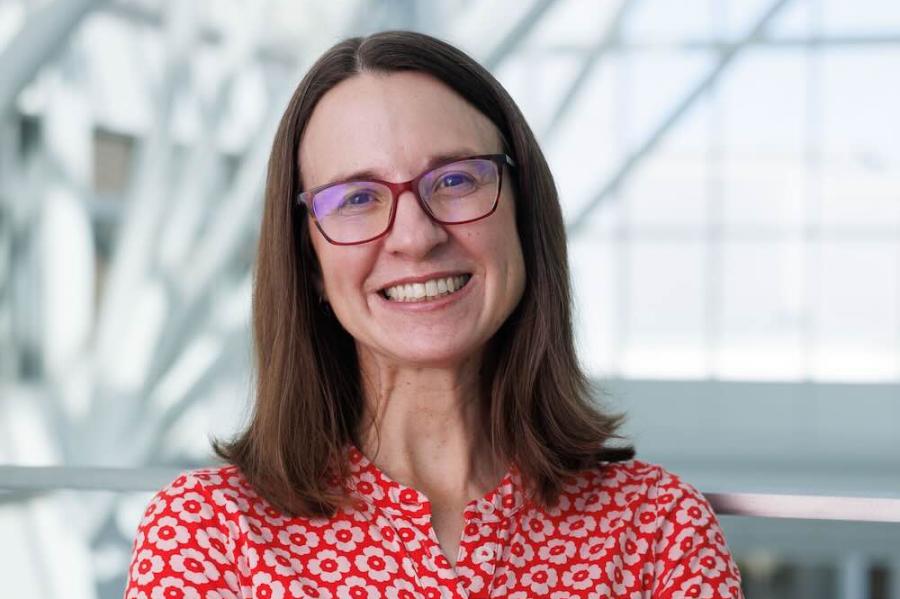
Michelle Smith
Senior Associate Dean for Undergraduate Education
Distinguished Professor of Arts and Sciences
Michelle Smith is a professor in the Department of Ecology and Evolutionary Biology. As Senior Associate Dean for Undergraduate Education for the College of Arts & Sciences, Smith oversees the undergraduate student services spanning admissions, advising, and career development. She also provides oversight of the College’s undergraduate curriculum and serves as liaison to the university on the College’s undergraduate program.
Smith works in the field of discipline-based education research, which emphasizes teaching and learning in specific disciplines at the undergraduate level. Her work focuses on helping instructors identify concepts that are difficult to learn in biology courses, designing undergraduate biology curriculum materials, measuring what aspects of active learning make it an effective instructional tool, and determining how instructors can help students with the transition between high school and college STEM courses.
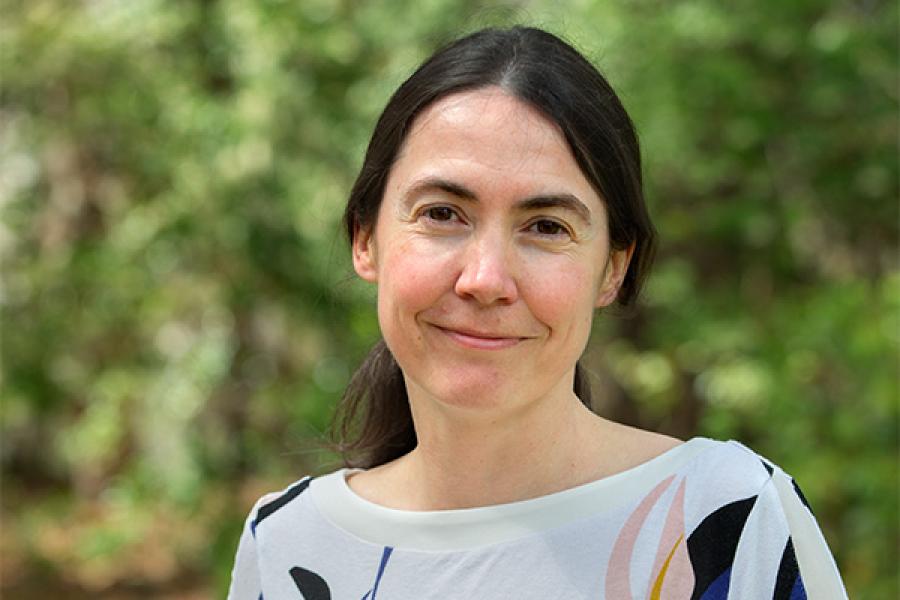
Rachel Bean
Senior Associate Dean for Math and Science
Jacob Gould Schurman Professor of Astronomy
Rachel is serving as the Senior Associate Dean for Math and Science. She has previously served as the Interim Dean in the College of Arts and Sciences and as the Senior Associate Dean for Undergraduate Education, overseeing admissions, advising, career development and registrar services, and the undergraduate curriculum. She has previously chaired the Faculty Diversity Committee and the Data Science Curriculum Committee in the College, following which she spearheaded the introduction of a university-wide undergraduate minor in data science.
Rachel’s research is in the field of cosmology, the study of how the universe began and evolved into what we see today. Her work focuses on extracting information about cosmological theories, deciphering the properties of matter and gravity on cosmic scales and the physics of the early universe, using astrophysical observations of the cosmic microwave background (CMB) and galaxies (large-scale structure). She is involved in a number of ground and space based astronomical experiments including the NASA science teams for the Euclid and Roman Space Telescope missions.
Patrizia McBride
Senior Associate Dean for Social Sciences and Interdisciplinary Programs
Frank H.T. Rhodes Professor of Humane Letters
607-255-4146
patrizia.mcbride@cornell.edu
Patrizia C. McBride is the Frank H.T. Rhodes Professor of Humane Letters in the Department of German Studies.
McBride’s research spans German-language literature and culture from the eighteenth to the twentieth century, focusing especially on theories of modernity and modernism, the intersection of aesthetics, philosophy, and political theory, and visual and media studies. Her scholarship revolves around three main themes: the development of narrative within literary and visual media; the ways in which the reflection on art and society in the twentieth century contributed to the politicized practice of the avant-garde; and the increasing concern, in the twentieth and twenty-first centuries, with understanding how literature and the arts are shaped by their material media.
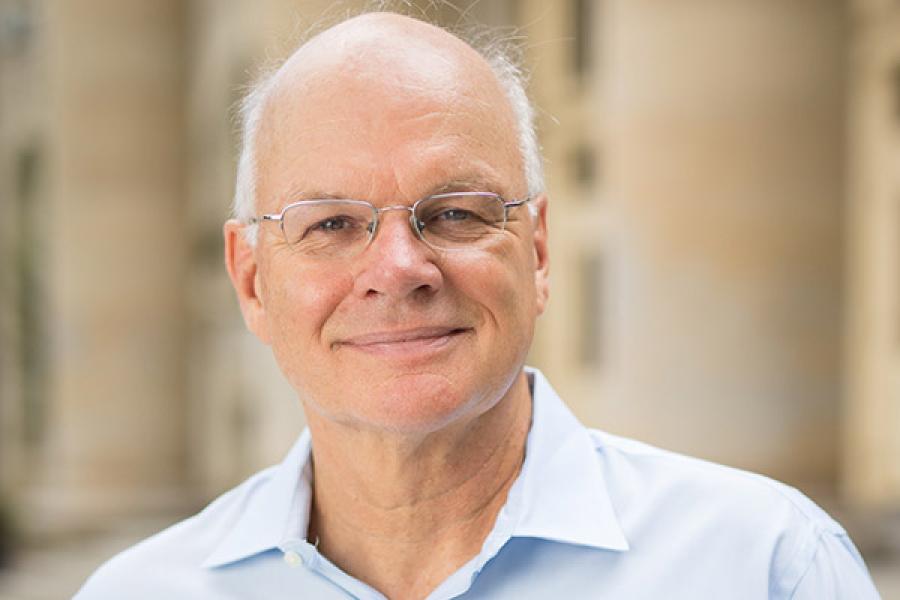
Derk Pereboom
Senior Associate Dean for Arts and Humanities
Susan Linn Sage Professor of Philosophy and Ethics
607-255-4146
dp346@cornell.edu
Derk Pereboom is the Susan Linn Sage Professor of Philosophy and Ethics at Cornell. As Senior Associate Dean for the Arts and Humanities, he oversees departments and programs in the arts and humanities, the J.S. Knight Institute for Writing in the Disciplines, and the Harrison College Scholar Program.
Pereboom’s research is primarily on free will and moral responsibility and in philosophy of mind. He also works in early modern philosophy, especially on the philosophy of Immanuel Kant, and in philosophy of religion. He teaches courses in each of these areas.
Senior Staff
| Position | Name | Contact |
|---|---|---|
| Associate Dean of Administration | Warren Petrofsky | 607-255-1097 warren.petrofsky@cornell.edu |
| Senior Administrator to the Dean | Adrienne Clay | 607-255-4450 abc252@cornell.edu |
| Associate Dean for Alumni Affairs and Development | Haley Weiss | hweiss@cornell.edu 607-319-9323 |
| Assistant Dean of Communications | Tricia Ritterbusch | 607-255-7165 tmr82@cornell.edu |
| Assistant Dean of Human Resources | Donna Lynch-Cunningham | 607-255-4904 dml336@cornell.edu |
| College Registrar | Savannah Williams | 607-255-5004 ss376@cornell.edu |
| Director of Administration | Duncan Bell | 607-255-1818 dab12@cornell.edu |
| Director of Admissions | Irene Lessmeister | 607-255-4833 iv29@cornell.edu |
| Director of Advising | Ray Kim | 607-255-5004 yrk2@cornell.edu |
| Director of Career Development | Jennifer Maclaughlin | 607-255-4166 jlm543@cornell.edu |
| Director - Computer Support | Frank L. Strickland | 607-255-5080 fls1@cornell.edu IT Support Request |
| Director of Data Admin and Reporting | Cynthia L. Sedlacek | 607-255-3920 cls2@cornell.edu |
| Director of Facilities | Erik Gray | 607-255-3801 eeg4@cornell.edu |
| Director of Finance and Budget | Roderick J. Cort | as-budget@cornell.edu |
